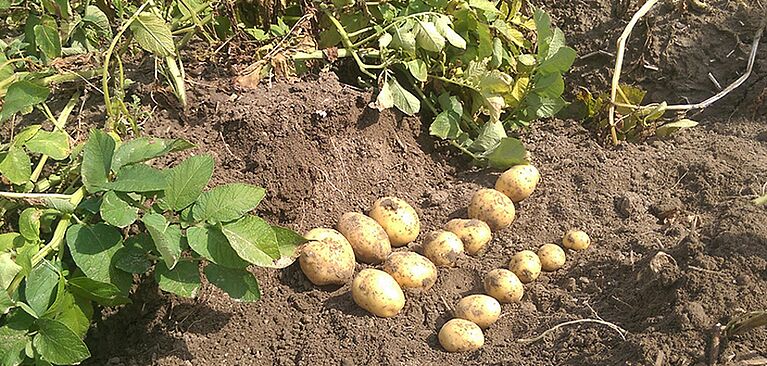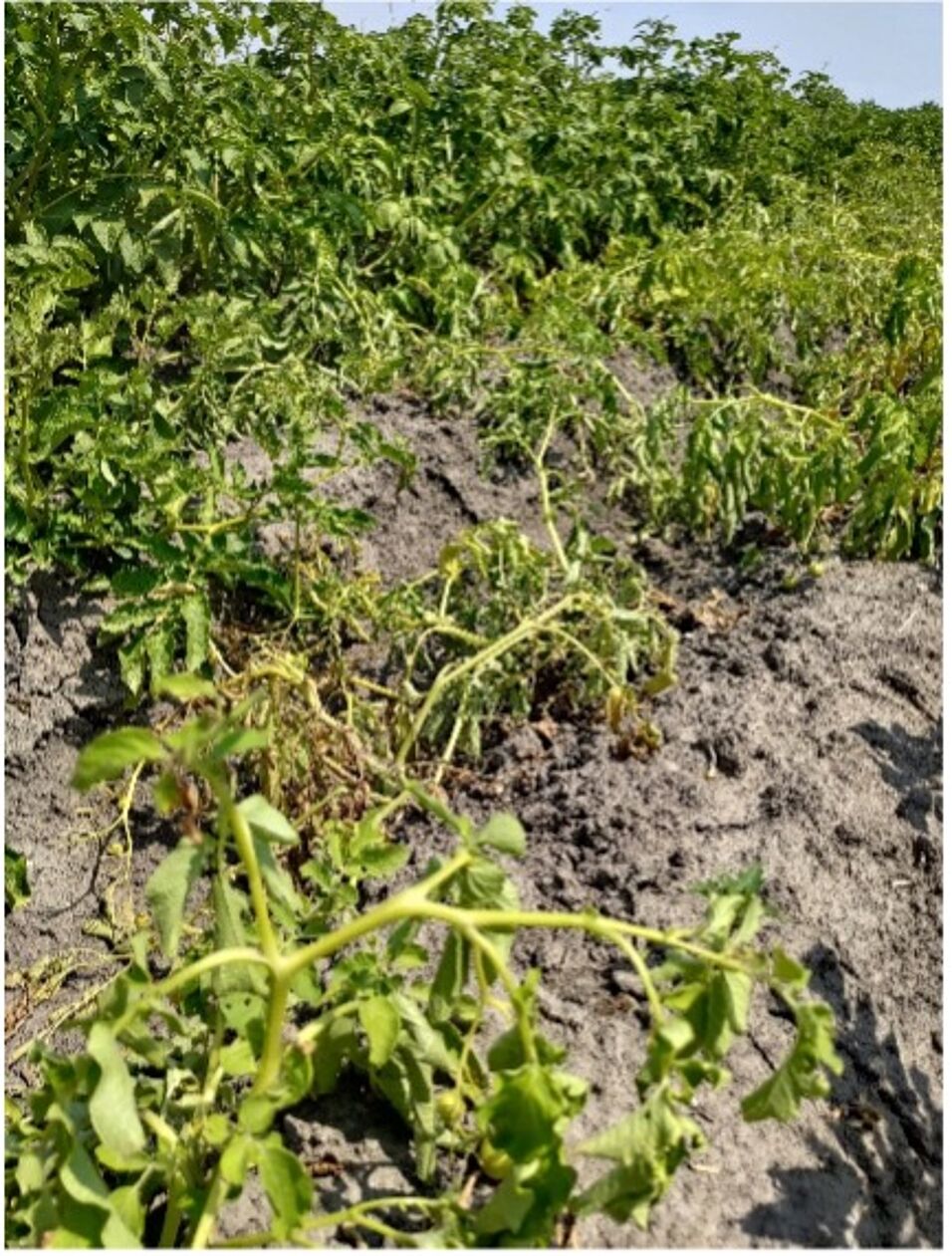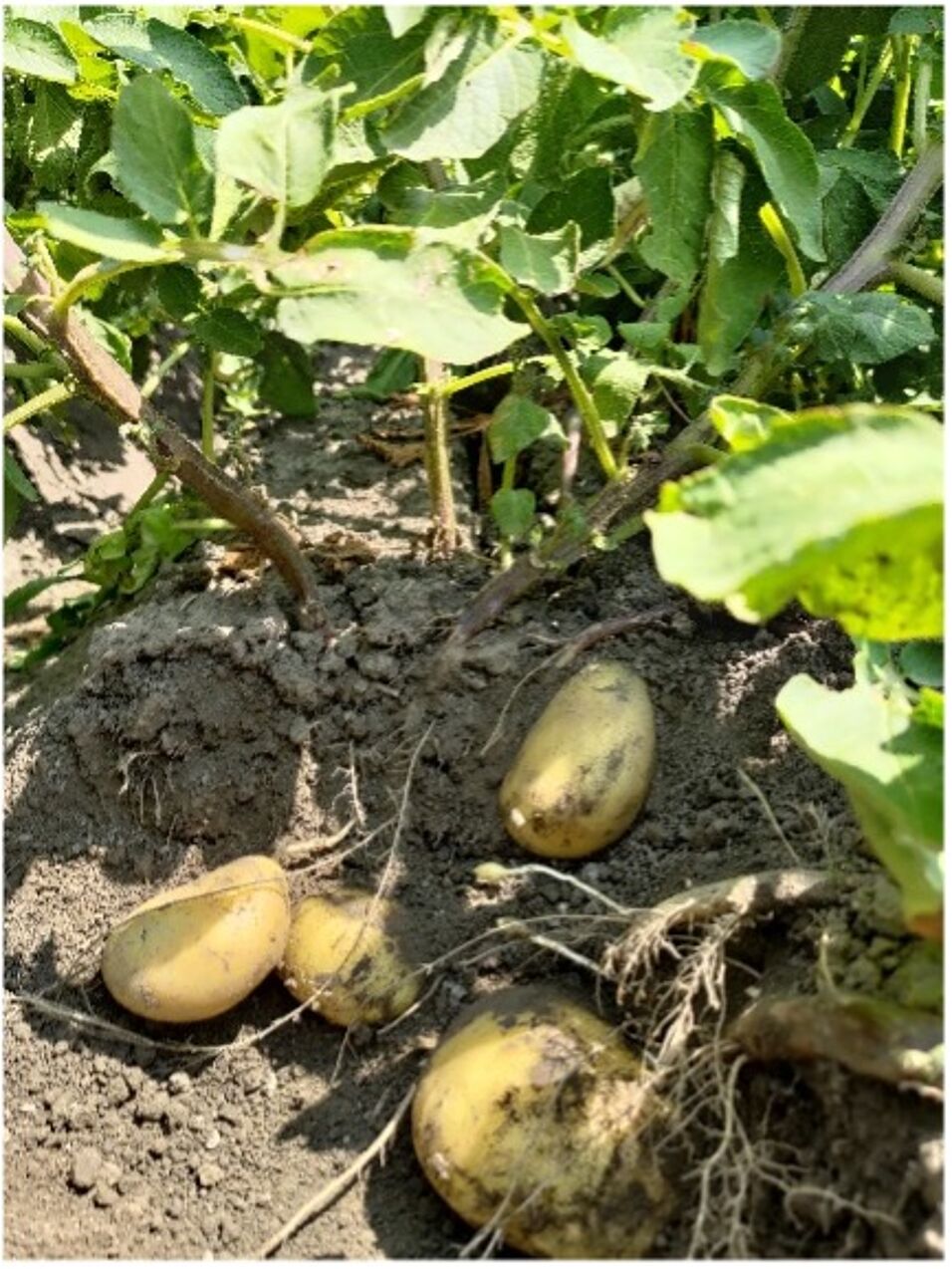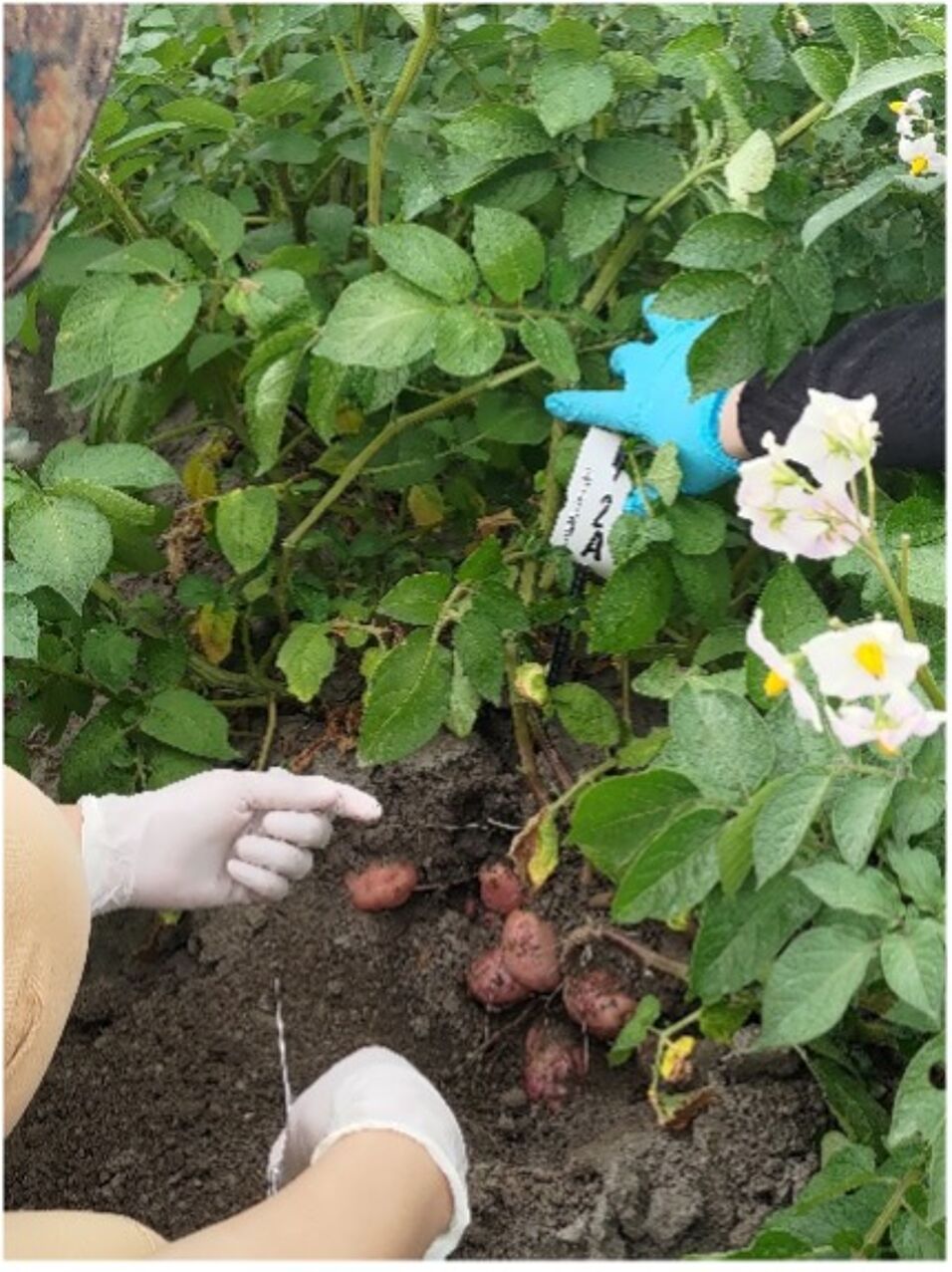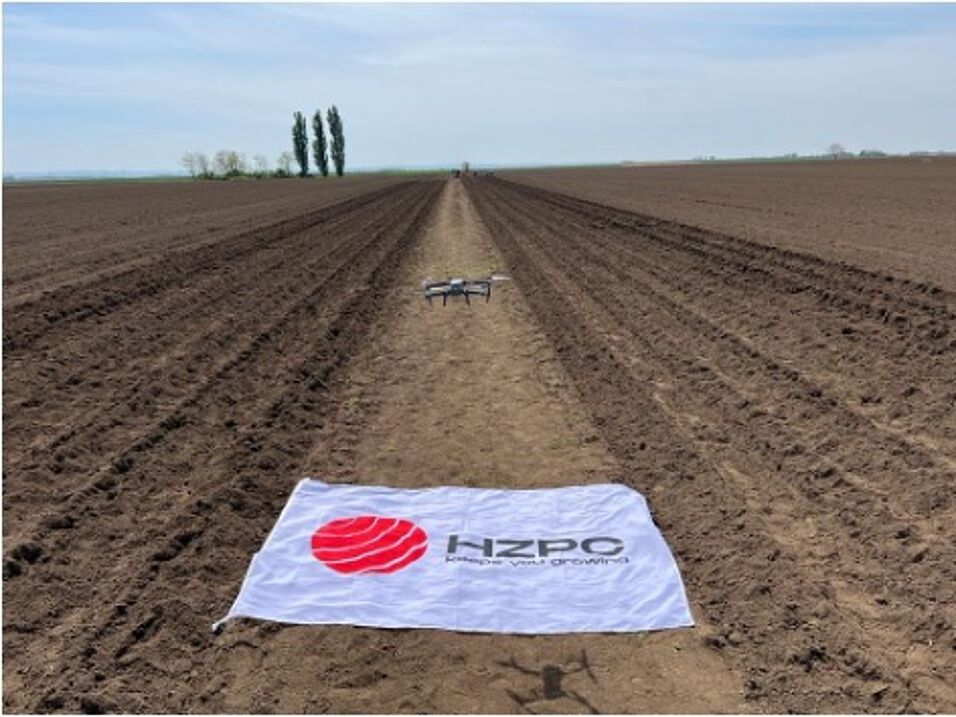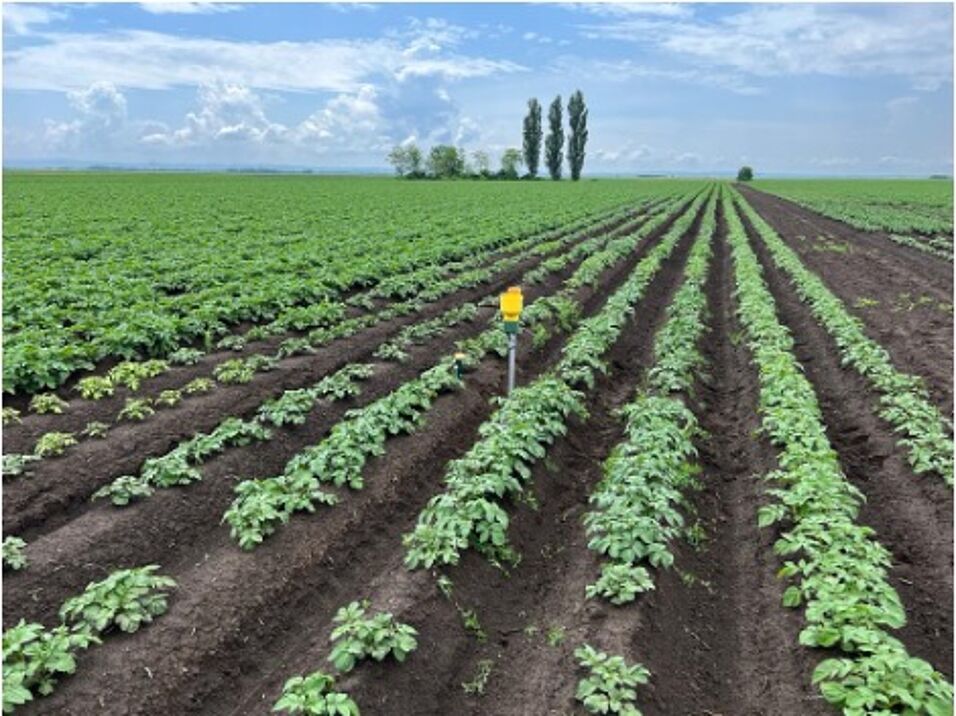ADAPT field trials are designed to resolve global molecular and physiological changes in potato plants exposed to multiple abiotic stressors and correlate them to tuber yield. In Austria and the Netherlands, the trials are being performed with and without irrigation to test specifically drought stress sensitivity. Moreover, in Serbia and Austria ADAPT researchers from the NIB in Ljubljana and the University of Vienna visited the trials to take samples for further molecular analyses. The weather conditions were quite challenging for the potatoes at all places but reflect the full spectrum of potential stress conditions: while fields were flooded at the trial in Serbia and plants are suffering from subsequent fungal and viral infections, strong heat- and drought stress are currently challenging potato plants at the Marchfeld trial run by the AGES in Austria.
Sampling of AGES field trials for in-depth analysis
Field trials in Serbia were visited by researchers from the NIB in Ljubljana on June 26 for the sampling of leaf material. The trials in Austria were sampled also on June 26 and again on July 11 after a strong heat- and drought period, which caused clear growth differences among the tested varieties, which became particularly obvious in the non-irrigated fields (Fig. 1).
Even though harvest did not take place yet, all teams expect to see clear differences in potato yield due to the combination of multiple stress conditions. It will be highly interesting to see differences in molecular acclimation strategies based on analysis of gene expression studies as well as proteomics and metabolite analyses, which will be carried out by the team from the University of Vienna from the samples taken in Austria.
For each trial, also drone flights were conducted, and RGB, thermal and multispectral images were collected. The first drone flight has taken place on May 31st and more flights were performed to follow growth and development. Harvesting and scoring of the trial are scheduled for late August or early September. Subsequent analyses will allow HZPC to take a closer look into stress genes involved in the responses to heat and drought. After harvesting, all samples will be sent to HZPC Research for further grading using an optical grader and additional measurements, such as determining underwater weight etc.
